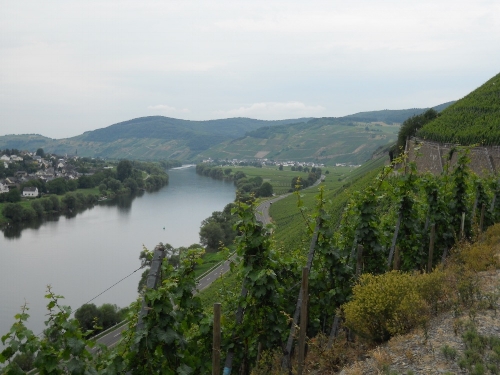Written by Al Drinkle
Perhaps the most noble utility of the artisanal farmer is to nurture into existence that which nobody cares about or isn't the least bit commercially viable, but represents a gift from nature to humankind. Having virtually no experience with farming, I can only imagine the mercantile sacrifices that must be made in order to do so; but nature isn't concerned about fiscal gains, only about the occasional provision of altruistic blessings.
Such is auslese. This is a style of German wine that is almost invariably sweet, but the best are also refreshing and piquant and can only be made in very particular, benevolent growing seasons. They are wines of singular beauty and are Kantian ends in and of themselves.
Andi Spreitzer, an extremely talented winegrower in the heart of the Rheingau, once lamented to me about the fact that in years when his father was able to make auslese Riesling, his customers literally fought over the liquid treasure and unless bottles were protected from the covetous, thirsty fiends, the limited production would sell out immediately. These days very few people seem to care. And echoing the concerns of Terry Theise (an experienced American importer of German wine), a lot of this seems to have to do with the fact that neither sommeliers, diners, nor the average retail customer know what to do with these fascinating liquid revelations.
I'm here to solve the mystery. What is one supposed to do with a good bottle of auslese? You should fucking drink it. Pour it into a glass, tilt the glass to your mouth, and drink it. Alternately, considering the virtually peerless aging capacities of the best of these wines, put a bottle in your cellar, pull it out in 10, 20 or 30 years, and drink it. Don't worry about pairings, don't worry about company, and most importantly, don't fear the sweetness - it's naturally occurring and also present in these other things that you may or may not enjoy:
Apples, Oranges, Pears, Pomegranate, Kiwis, Peaches, Cherries, Strawberries, Raspberries, Cantaloupe, Blackberries, Huckleberries, Saskatoon Berries, Blueberries, Bananas, Pineapples, Grapefruits, Tangerines, Yunus, Tamarillos, Papayas, Passionfruit, Lychees, Mangos, Plums, Watermelons.
Each late-harvest wine on offer below is a miracle of nature that whispers wisdom to the receptive interlocutor and supplicates itself to you as a beautiful, inclusive experience in this often-alienating world. The mesmerizing complexities therein will be enough to captivate your senses, create deities for you to believe in, and ultimately, improve your dismal existence.




